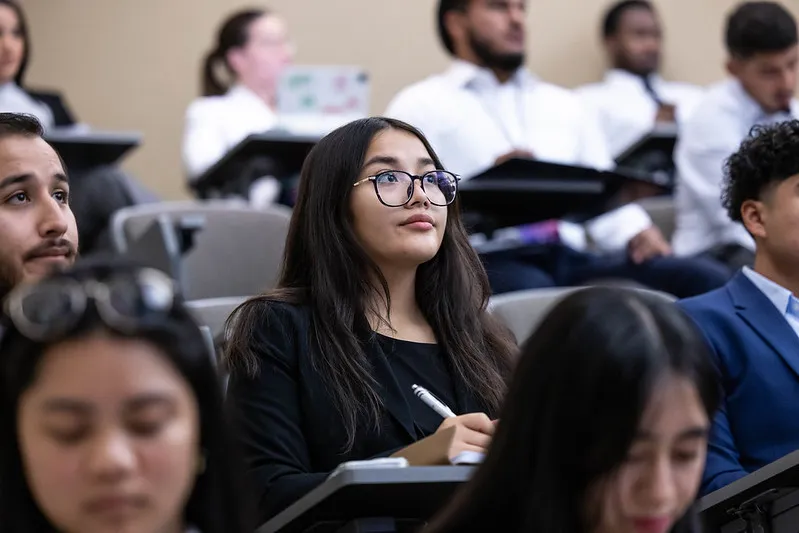SWAU Assessment Cycle
The assessment process at Southwestern Adventist University (SWAU) is a continuous, five-step cycle designed to promote student learning, accountability, and institutional effectiveness. This cycle ensures that our academic programs remain dynamic, student-centered, and aligned with both university goals and accreditation standards.
1. Set Student Learning Outcomes
Programs begin by identifying clear and measurable learning outcomes that describe the knowledge, skills, and abilities students should demonstrate upon completion of a course or degree. These outcomes serve as the foundation for curriculum development, ensuring that every course and experience contributes to the program’s broader goals.
-
Outcomes are designed to align with SWAU’s mission, institutional priorities, and national accreditation expectations.
-
Faculty collaborate to make outcomes specific, measurable, and student-focused.
2. Assess Learning Outcomes
Assessment methods are put in place to evaluate how well students are achieving the identified outcomes.
-
Programs determine appropriate measures, which may include exams, portfolios, projects, performances, licensure results, or surveys.
-
Targets for success are established, such as benchmarks (e.g., 80% pass rate) or comparison groups, to provide context for evaluation.
3. Analyze Results
The collected data are reviewed and analyzed to determine the extent of student achievement.
-
Faculty and program leaders examine whether outcomes were met, exceeded, or fell short of expectations.
-
Results are disaggregated when possible (e.g., by class level, major, demographic group) to identify equity gaps or areas needing special attention.
-
Data are used not only for compliance but also to generate actionable insights for teaching and learning.
4. Implement Changes
When assessment findings indicate areas for growth, action plans are developed and implemented.
-
Programs adjust curriculum, teaching methods, assignments, or support services to close the gaps identified.
-
Resources may be reallocated to ensure student needs are met.
-
This step transforms the assessment from a reporting exercise into a living process for continuous improvement.
5. Reflect and Revise
Finally, reflection ensures the cycle remains ongoing and impactful.
-
Faculty and administrators evaluate whether changes have led to improvements in student learning.
-
Successful practices are reinforced, while additional revisions are made if outcomes are still not met.
-
This reflection also provides opportunities for sharing best practices across the university.
Why This Matters
The SWAU Assessment Cycle ensures that assessment is not a one-time event but a continuous process. It allows the university to:
-
Strengthen student success by identifying effective teaching and support strategies.
-
Enhance accountability by providing evidence of student achievement to stakeholders and accreditors.
-
Promote innovation by using data to guide curricular improvements and new initiatives.
-
Foster a culture of reflection and learning that benefits both students and faculty.
Evaluating Student Learning & Program Performance
- How effectively are our students mastering key concepts? Are our programs achieving their intended goals? How do we track progress and success? Each year, Southwestern Adventist University systematically evaluates student learning through comprehensive assessment reports. Academic program assessment is a continuous process that involves clearly defining learning objectives, analyzing student outcomes, and leveraging insights to refine and enhance programs.
Assessment Reports
- Faculty members document student learning outcomes and program effectiveness annually using Watermark Planning & Self-Study. These reports provide valuable insights from the previous academic year, helping departments assess strengths, identify areas for improvement, and implement strategic enhancements. Faculty are encouraged to actively engage in the review process, analyze results, and develop data-informed action plans to strengthen academic programs.
Assessment Reporting Resources
To support faculty in assessment planning and reporting, the following resources are available at the bottom of the page:
- Step-by-Step Guide to Watermark Planning & Self-Study
- Assessment Rubric for Reporting
- Instructional Video on the Reporting Process
For first-time users or those seeking guidance on assessment planning and reporting, please contact research@swau.edu to schedule a meeting.
Submission Deadline
- All program assessment reports must be submitted by June 30th each year. Timely submission ensures that assessment data can be reviewed and used to support continuous improvement efforts.
Assessment Resources
